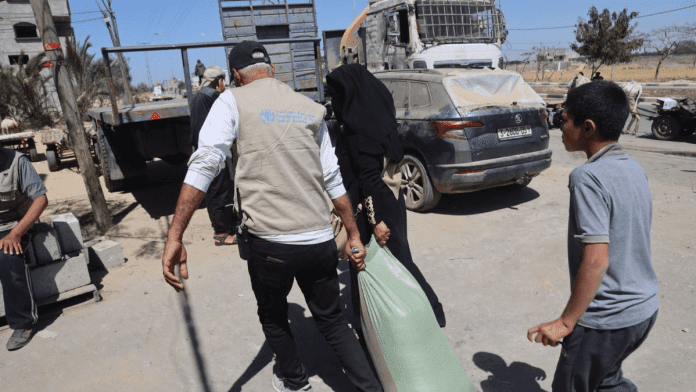News in Brief:
– FAO delivers 150 tonnes of animal fodder to Gaza to combat malnutrition and starvation, supporting local farmers amidst conflict-induced food insecurity.
– Conflict in Gaza has led to the loss of livestock and collapse of agrifood chains, prompting FAO’s urgent intervention to prevent famine and restore food production.
The Food and Agriculture Organization of the United Nations (FAO) is currently embarking on a mission to deliver 150 tonnes of animal fodder to livestock-keeping households, it said in a press release. This effort aims to safeguard the survival of animals and bolster the local production of essential foods like milk, dairy, eggs, and meat.
The situation in Gaza has reached a precarious state, with an imminent risk of famine looming large. The recent escalation of hostilities has led to the collapse of agrifood value chains, exacerbating acute food insecurity. Famine conditions are already emerging in the northern region, further highlighting the urgency of action.
Local farmers in Gaza, who were already grappling with a diminished agriculture sector pre-war, are facing significant challenges. The conflict has resulted in the loss of around 55% of meat and dairy-producing livestock, severely impacting the livelihoods of farmers. Import restrictions make it difficult to replace these losses, amplifying the crisis for local communities.
Recognising the critical need for intervention, FAO is stepping up its efforts to provide much-needed animal fodder to affected households. By ensuring the availability of fodder, FAO aims to support the survival and reproduction of livestock, thereby providing essential nutrition and income for farmers, even in the midst of conflict.
Despite the urgency of the situation, logistical hurdles, particularly obtaining entry permits, have hindered the effective delivery of aid. However, FAO remains committed to overcoming these challenges to prevent famine and extreme malnutrition. Collaboration with partners and donors, as well as support from governments such as Belgium, Italy, and Norway, is crucial in this endeavor.
Abdulhakim Elwaer, FAO Assistant Director-General, emphasises the importance of peace and the right to food as fundamental human rights. Urging for an end to unrest, Elwaer stresses the need to tackle acute food insecurity and protect lives, both human and animal, from further harm.



